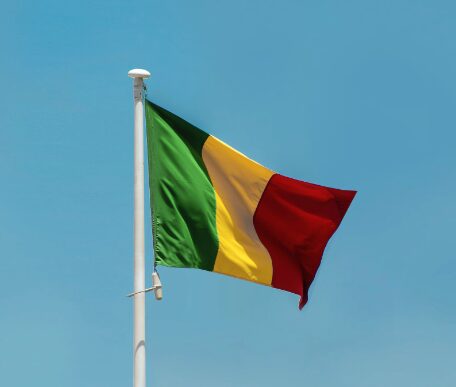The United Nations has begun an unprecedented six-month process to withdraw nearly 13,000 peacekeepers and law enforcement personnel from Mali, as directed by the nation’s military junta. The decision to remove the UN forces comes as Mali’s government turns to Russia’s controversial Wagner Group as a means to combat the ongoing Islamic insurgency in the region.
UN Peacekeepers and Law Enforcement Withdrawal
El-Ghassim Wane, the UN Special Envoy for Mali, has confirmed that the withdrawal process requires all UN staff and facilities, including 12 camps and one temporary base, to be handed over to the government by December 31st. As the UN withdrawal proceeds, concerns are mounting over the potential consequences of relying on the Wagner Group, a private military company infamous for its unethical tactics and actions, to maintain security and stability in the region.
Analysts worry that the decision to engage Russian mercenaries might fuel existing tensions and promote further unrest in Mali.
Massive Logistical Operation for MINUSMA Mission
In addition to the UN personnel, around 5,500 sea containers of equipment and 4,000 vehicles belonging to the UN and contributing nations to the MINUSMA peacekeeping mission must also be removed. This colossal logistical operation demands careful coordination and planning to ensure the safe and efficient withdrawal of these vital assets.
The withdrawal process has been methodically planned, with each stage designed to prioritize the security of the peacekeeping forces while minimizing disruption to ongoing mission activities.
Liquidation Phase and Continued UN Police Presence
The withdrawal process is set to continue through an 18-month “liquidation” phase commencing January 1, 2024. During this time, UN police will remain stationed in Bamako, Gao, and Timbuktu, where the equipment is being consolidated. The liquidation phase will primarily focus on disassembling and repatriating essential equipment and infrastructure linked to the UN operations, with the safety and security of the personnel involved guaranteed by the ongoing presence of UN police forces in these cities.
Background of Mali’s Instability and Conflict
Mali has been grappling with instability ever since a military coup in 2012, which was swiftly followed by rebels in the north declaring an Islamic State two months later. In response to escalating conflict, a French-led military intervention was launched in 2013 to thwart the advances of the rebels and reclaim control over the northern regions. However, despite these efforts, the unrest has continued, forcing thousands of citizens to be displaced and taking a toll on the country’s security and economy.
Continued Ongoing Conflict and International Efforts
Although the French-led military operation effectively ousted the rebels from power in northern Mali, they migrated to central Mali in 2015 where they have persisted with their extremist operations.
The ongoing conflict has spurred a substantial uptick in violence and unrest in the region, impacting civilians and worsening existing social and economic obstacles. International efforts, spearheaded by the United Nations peacekeeping forces and local governments, are continuously working to address the issue and identify viable solutions to reestablish peace and stability in the affected areas.
FAQ Section
Why is the UN withdrawing peacekeepers and law enforcement from Mali?
The UN is withdrawing its forces from Mali as directed by the nation’s military junta. This decision comes as Mali’s government turns to Russia’s controversial Wagner Group for support in combating the ongoing Islamic insurgency in the region.
What is the timeline for the withdrawal process?
The UN will complete the initial withdrawal process within six months, with all staff, facilities, and equipment handed over to the Mali government by December 31st. An 18-month “liquidation” phase will follow, commencing on January 1, 2024.
What is the Wagner Group, and why is its involvement in Mali a cause for concern?
The Wagner Group is a Russian private military company known for its unethical tactics and actions. The involvement of these Russian mercenaries in Mali may fuel existing tensions and promote further unrest in the region, raising concerns among analysts and international observers.
What’s the scale of the logistical operation for the withdrawal of MINUSMA mission assets?
Approximately 5,500 sea containers of equipment and 4,000 vehicles associated with the MINUSMA peacekeeping mission must be removed from Mali. This massive logistical operation requires careful coordination and planning to ensure the safe and efficient withdrawal of these important assets.
What is the background of Mali’s instability and conflict?
Mali’s instability began with a military coup in 2012, followed by rebels in the north declaring an Islamic State two months later. Despite a French-led military intervention in 2013, unrest has persisted, leading to thousands of displaced citizens and taking a significant toll on the country’s security and economy.
What are the ongoing efforts to address the conflict in Mali?
International efforts, led by the United Nations peacekeeping forces and local governments, continue to seek solutions to reestablish peace and stability in the region. However, the ongoing conflict has resulted in increased violence and unrest, impacting civilians and exacerbating existing social and economic challenges.
First Reported on: apnews.com
The post Mali’s Tense UN Pullout: Peacekeepers Exit Looms appeared first on Under30CEO.
Tim Worstell is a syndicate partner and columnist at Grit Daily. He is a strategic influencer in digital marketing and leadership. As an entrepreneur, he always looks for opportunities to help companies grow and reach their full potential. Building strong relationships with partners has been the key to building Adogy, a profitable growth marketing agency. Adogy is a company that specializes in thought leadership and SEO.
Credit: Source link


Comments are closed.